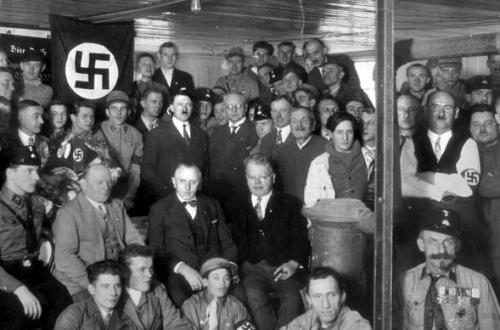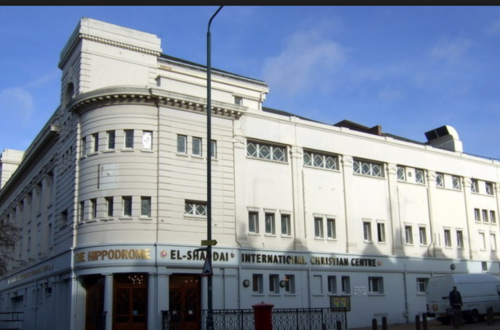This is a guest post by Raphael.
The British government has unveiled a new scheme today, designed to show appreciation to violent criminals. The controversial new scheme will see people convicted of GBH start on £65 per week. Violent suspects will no longer have to pay bail money, but will rather receive money from the state. Perhaps the most edgy aspect of the scheme will see murderers earning £400 per week, with payments increasing according to the length of the jail sentences. Top-earners with life sentences will earn three times as much as their guards in prison.
Clearly this scenario seems fanciful to Britons, who rightly rely on the justice system to discourage violent crime. Yet this dystopic vision has become reality in the Palestinian Authority, which recently celebrated Israel’s release of Abu-Musa Atia; a man who took up an axe and hacked Holocaust survivor Isaac Roseberg to death in 1994. The PA viewed Atia as a political prisoner, and lobbied for his release along with murderers and accomplices, as a pre-condition to resuming peace talks with Israel.
The PA offers a salary scheme to prisoners tried and convicted in Israel, paying a maximum of £1957 per month to prisoners serving life sentences for murder, complicity in murder or terror-related activities. All of the 52 convicted murderers released from prison by Israel in the framework of peace negotiations with the Palestinians will obtain grants up to £30,000 and monthly sums of around £2400. Those who served at least 25 years in prison will be awarded about £2400 in monthly wages, so they will earn as much as a major-general in the security forces or a deputy minister in the PA. One of the prisoners receiving a £30,000 grant is Isaac Rosenberg’s murderer.
With Palestinian unemployment reaching over 20% in the West Bank, and low wages remaining problematic (for example a security official earns £540-740 per month, and the average Palestinian monthly wage is roughly £392, according to the Palestinian Central Bureau of Statistics), the wages of the “professional” terrorist seem temptingly, tantalisingly high by comparison. As the Daily Mail pointed out, this is more than the average British worker earns.
A similar pattern can be seen in Iraq, where some men are becoming terrorists simply to feed their families, as the Independent reported yesterday:
Ordinary fighters were offered a $700 (£427) a month salary, ex-fighters were paid according to their rank,” says Sattar Khalaf. “The non-commissioned officers with battle experience were offered $850 monthly and former officers’ salaries depended on their rank, starting from $1,500 per month.” […] Ghafil Khayoun Khadim is a 38-year-old unemployed construction worker with a wife and two children who lives in a tough Shia neighbourhood in east Baghdad. […] Ghafil says he had no work in July and “I found myself penniless, my kids hungry and my wife in need of money, so I came around to the idea of fighting in Syria.” Another motive was that he is self-consciously Shia and “it is my duty to defend the shrine of the Sayyida Zaynab.” He received $500 up front and some military training.
These are uncertain times for young people across the Middle East.
We shouldn’t forget how the Arab Spring was started, with Tunisian fruit vendor Mouhamed Bouazizi setting himself on fire. Bouazizi found it nearly impossible to earn enough money, exasperated as to why local police officers would confiscate his produce and deny him permission to sell. The thought good men like Bouazizi are left to despair, whilst an evil men like Salem could hack a pensioner to pieces and be rewarded financially, sends a chill down the spine of fair-minded liberals.
Yet even when arrested, a terrorist can be comforted knowing that the Palestinian Authority will look after him and his family financially, and there’s a good chance Israel will one day let him go, perhaps in return for a kidnapped Israeli, or to facilitate peace talks.
Just recently, Brits were outraged by the benefits paid to the Al Qaeda terror ideologue Abu Qatada and his family. Britons were powerless as he callously exploited British welfare. To read of Qatada demanding a bigger house was simply galling, and it was a relief when Britain was finally able to deport him. So it is easy to undestand also how uneasy Israelis feel when we see terrorists thrive and benefit.
The financial enticements to terrorists should be concerning for the international community, who have invested billions of pounds into helping the Palestinian Authority develop its economy and infrastructure. The international community ought to pay attention to the £45 million paid out by the PA to terrorists in Israeli prisons in 2012, and the £47 million paid to their families of deceased terrorists in the same year. Together, these amounts account for over 16% of the annual foreign donations and grants to the PA budget. These are phenomenal sums that simply cannot be overlooked by international organisations pouring money into the Palestinian Authority.
A society assigning moral dignity to those who commit terrible crimes, itself becomes a prisoner to hatred and negativity. It is commendable that the PA should enter into negotiations with Israel, yet it needs to be clear on its principles. A healthy and long lasting society will come about by celebrating life not death, and by valuing achievements rather than destruction.
Ultimately, we know that peace between Israelis and Palestinians cannot be imposed by politicians and ministers, but needs to first be welcomed by ordinary people. Peace will be that much closer when murderers are no longer treated as celebrities, and when the idea of paying them is seen as nonsense.


